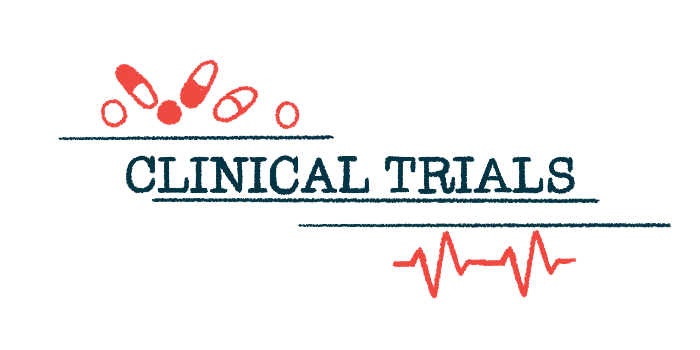HAE patients mostly attack-free after gene-editing therapy: Data
No need for preventive treatment 2-3 years after lonvo-z in trial
Written by |

In the years following treatment with the gene-editing therapy lonvoguran ziclumeran, or lonvo-z — also known as NTLA-2002 — most people with hereditary angioedema (HAE) taking part in a clinical trial have been completely free from swelling attacks without the need for long-term preventive therapy.
That’s according to new data from a Phase 1 study by developer Intellia Therapeutics that has now followed most participants for two years or longer.
“[These] results underscore the promising potential of Intellia’s approach to gene editing therapy — a one-time treatment that was well tolerated and offered a highly differentiated, durable effect for patients suffering from a serious disease,” John Leonard, MD, president and CEO of Intellia, said in a company press release.
Intellia presented the data earlier this month at the European Academy of Allergy and Clinical Immunology (EAACI) Congress 2025. The presentation, titled “Long-term durability of CRISPR-based gene editing of KLKB1 from Phase 1 of a Phase 1/2 trial of patients with hereditary angioedema,” was given by researcher Hilary J. Longhurst of Auckland City Hospital and University of Auckland in New Zealand.
Overall, according to that presentation, “with up to [three] years of follow-up, a 98% reduction in attack rate was observed following a single dose of lonvo-z.”
HAE is a genetic disorder characterized by abnormally high activity of bradykinin, a signaling molecule that triggers swelling, which can occur anywhere in the body. Bradykinin is produced by an enzyme called kallikrein.
The gene KLKB1 provides instructions to make a precursor of the kallikrein enzyme. Lonvo-z is a one-time therapy designed to inactivate this gene, thereby reducing kallikrein levels and ultimately lowering bradykinin levels to prevent swelling attacks.
98% reduction in swelling attacks seen with gene-editing therapy
The new data involve 10 people with HAE treated with lonvo-z in the Phase 1 portion of a Phase 1/2 clinical trial (NCT05120830) being conducted in Europe, and in Australia and New Zealand. All of the participants received a single infusion of lonvo-z at one of three doses. Most have now been followed for about two years since being given the gene-editing therapy, though a few have been followed for nearly three years.
The researchers noted that all patients who had been on long-term prophylactic, or preventive, treatment have stopped using those therapies.
Some participants continued to experience swelling attacks within the first four months after treatment, the data showed. But since then, almost all of the participants have been completely attack-free. Specifically, after the first four months, two patients each experienced a single attack.
Altogether, the average rate of monthly swelling attacks has decreased by 98% over the full study period, the data show.
Seeing all 10 patients in the Phase 1 portion of this study free from both HAE attacks and chronic therapy at nearly two years of median follow-up is incredibly encouraging.
As of the latest follow-up, all 10 patients have been free from attacks for at least a year, with many free from attacks for two years or longer.
“Seeing all 10 patients in the Phase 1 portion of this study free from both HAE attacks and chronic therapy at nearly two years of median follow-up is incredibly encouraging,” Leonard said.
Long-term data from the Phase 1 participants also have shown that lonvo-z treatment reduced kallikrein enzyme levels as designed. No serious safety issues have been reported, and no side effects from lonvo-z have been documented beyond the first month after treatment. The most common side effect was infusion reactions, which were generally mild and resolved.
Phase 3 HAELO trial now testing therapy’s 50 mg dose
Intellia is now sponsoring a Phase 3 clinical trial, called HAELO (NCT06634420), that is testing lonvo-z against a placebo in about 60 adults with HAE. The study’s main goal is to assess whether lonvo-z, given at the optimal biological dose of 50 mg, is better than the placebo at preventing swelling attacks.
If the results are positive, Intellia plans to use this trial as a basis to seek approval of lonvo-z, the company said, noting its “plans for a U.S. launch in 2027,” should the treatment be cleared for use.
According to Leonard, the new Phase 1 data “fuel our optimism for the outcomes of our ongoing Phase 3 HAELO study, which we expect to report in the first half of 2026, and highlight the strong value we believe it will offer patients, physicians and payers.”



